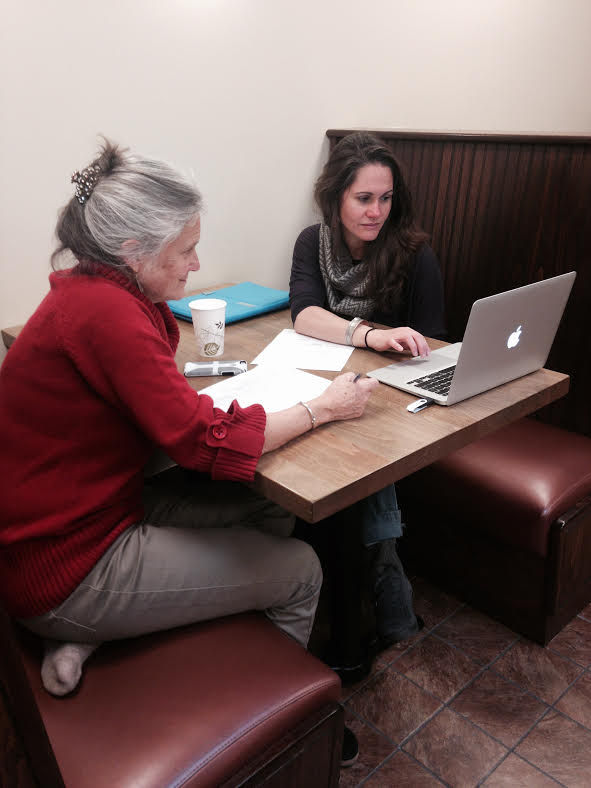Grand County Hospice needs your help.
The facility, which cares for patients who are in the last phases of their lives, has relied on volunteers from the very start, and this month, it’s looking for new recruits who want to make a difference.
It will be holding its annual volunteer training on Tuesday, Jan. 27 and Thursday, Jan. 29. The two-part training will be from 5 p.m. until 8 p.m. both days, inside Moab Regional Hospital’s Education Room 2.
“It’s not just a job,” Grand County Hospice Director Jessie Walsh says about her role in overseeing supportive care for patients, as well as their families.
Hospice care focuses on comfort and quality of life, rather than curing illness.
“We provide the patient and family information and support with grief, and with dying,” Walsh said. “We bring in social workers and spiritual care, in addition to nursing. People in the community volunteer their time and various talents. It’s a very holistic approach in supporting the patient and family through this huge life transition.”
Walsh summed it up by saying, “We can help people die the way they want to.”
The majority of patients in hospice care are able to stay in their home, though Grand County Hospice does also provide service to their patients who reside at the Canyonlands Care Center. Hospice staff and volunteers go to the patient.
Betsy Baier is a licensed clinical social worker who has worked with Grand County Hospice for about one year.
She came to her current job with decades of experience working around issues of grief and bereavement, both in hospice programs and also in hospitals and long-term care facilities. In addition to her extensive professional background, Baier has relevant personal experience, too: Her father was in hospice care, like the kind that Grand County Hospice offers.
Baier put it this way: “Hospice care allows people to die with support, with compassion, and comfort. All of the needs are being attended to, of both patient and family. Peace and comfort are of the utmost importance.”
“It’s such an amazing option for families to have for support during the loss of a loved one,” she added. “It can be an isolating experience, but it doesn’t have to be.”
In her professional capacity, Baier makes sure the patient’s family is supported in dealing with issues around impending loss, and after a loss.
“Everyone has difficulty when they’re losing someone,” Baier said. “We do what we can, and refer people if they need more support.”
Walsh emphasized the integrated nature of the caregiving.
“We at the Grand County Hospice are part of the hospital, part of the community, part of the continual support system that we have here. This larger support network may have delivered your baby, and on another occasion treated a broken bone, and maybe later helped you or a loved one through a difficult illness. There are people here to support you from the beginning of life until the end.”
Many of the community members involved in Grand County Hospice are volunteers.
Sarah Shea is an Americorps VISTA volunteer who serves as the hospice’s volunteer program coordinator.
“My role is to connect our patients with the volunteers who are the right matches for the family,” Shea said. “We can use any type of skill that a volunteer has to offer. Massage therapists, hair dressers, musicians, someone who wants to bring by animals, anyone interested in spirituality of any type. Some patients just want to laugh and chat, to just have company.”
“We just got a call that one of our patients wants to go for a drive,” Shea added. “Volunteers will make that happen.”
There are also ways to participate that don’t involve direct patient contact, such as tending the hospice garden, fundraising and administrative support.
Walsh underlined the important role that volunteers play in the hospice program. Shea agreed, saying, “Volunteers basically created Grand County Hospice. A lot of volunteers have been with Grand County Hospice since the beginning.”
Walsh and Shea are both relative newcomers to the organization, as both came on board at the end of last summer. At the time, Walsh said, there was a lot of internal evaluation.
“We wanted to restructure things to provide the most robust service possible to the community,” she said. “We focused more on support from social workers and spiritual counsel.”
Walsh said she wants to change people’s idea about what the end of life can look like.
“We acknowledge that death is sad, and painful, and a loss. But we believe it can be more than pain and sadness,” she said.
Shea added, “Just as we are happy with the birth of a new life, there can be happiness in celebrating a life well lived.”
Insurance often covers hospice services. Medicare covers “nearly everything” related to hospice care, according to Walsh.
Annual volunteer training on Tuesday, Jan. 27
“It’s such an amazing option for families to have for support during the loss of a loved one … It can be an isolating experience, but it doesn’t have to be.”




